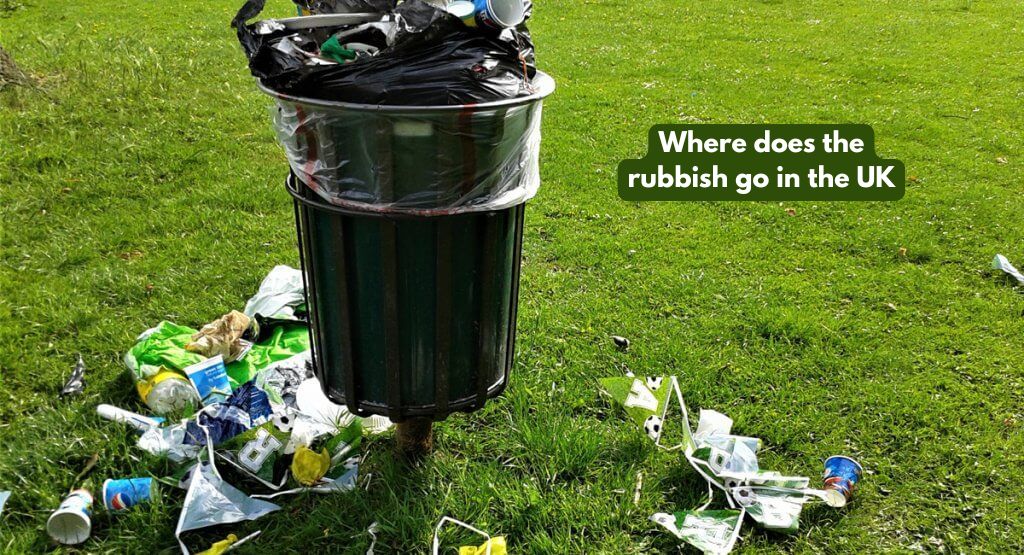In the UK, rubbish goes to landfills, recycling centers, and incinerators. Local councils manage waste collection and disposal.
The UK handles waste through a combination of landfilling, recycling, and incineration. Local councils oversee the collection and sorting of household waste. Recyclable materials get processed at recycling centers, while non-recyclable waste often ends up in landfills or incinerators. The country aims to reduce landfill use and increase recycling rates.
Incineration facilities convert waste into energy, helping to manage non-recyclable rubbish. Recycling plays a crucial role in minimizing environmental impact. Public awareness and participation in recycling programs are essential for effective waste management. The UK continues to develop strategies to improve waste disposal and sustainability.
Waste Collection Process
Household waste is collected by local councils. They provide bins for different types of waste. Recycling bins are for paper, plastic, and glass. General waste bins are for everything else. Food waste bins are for leftovers and scraps. Collection trucks take the bins to sorting facilities. Workers sort the waste for recycling. Non-recyclable waste goes to landfills or incinerators.
Commercial waste comes from businesses and industries. Companies hire waste management services. These services provide bins and skips. Waste is collected on a schedule. Some waste is recycled, like cardboard and metal. Hazardous waste needs special handling. It goes to specialized facilities. Non-recyclable waste goes to landfills or incinerators. Businesses try to reduce waste to save money and help the environment.
Sorting And Recycling
Materials Recovery Facilities, or MRFs, sort recyclable materials. Workers and machines separate paper, plastic, glass, and metal. These materials then go to recycling plants. MRFs play a key role in reducing waste.
Recycling Centers are places where people bring items to recycle. Common items include bottles, cans, and electronics. These centers help keep our environment clean. Many communities have local recycling centers.
Landfills And Incineration
In the UK, rubbish often ends up in landfills or is incinerated. Landfills store waste, while incineration burns it, generating energy.
Landfill Sites
Landfill sites are large areas where rubbish is buried. They are common in the UK. Rubbish in landfills can take many years to break down. This can cause pollution. Methane gas from landfills is harmful to the environment. The UK is trying to reduce the use of landfill sites. Recycling more can help with this.
Incineration Plants
Incineration plants burn rubbish to reduce its size. They can also generate electricity from the heat produced. Burning rubbish helps to save space in landfills. But, it can release harmful gases into the air. These plants have filters to reduce pollution. Many cities in the UK use incineration to manage waste.
Composting And Organic Waste
In the UK, many homes have a green waste collection service. This service collects organic waste like grass, leaves, and branches. People can put their garden waste in special bins. These bins are usually green in color. The council collects the bins every week or two.
After collection, the waste goes to composting facilities. These facilities turn waste into compost. Compost helps plants grow better. Some facilities use large machines to speed up the process. Others let nature do the work.
Innovations In Waste Management
The UK’s waste management innovations transform rubbish into energy, recycling materials, and reducing landfill use. Advanced sorting technologies and sustainable practices ensure efficient processing and environmental protection.
Waste-to-energy Technologies
Waste-to-energy plants turn rubbish into electricity. These plants burn waste to make power, which helps reduce landfill use and harmful gases. The process creates heat, which changes water to steam. The steam turns turbines, which make electricity. This method is eco-friendly and helps the environment. Many cities in the UK use waste-to-energy plants.
Circular Economy Initiatives
A circular economy aims to reuse and recycle. This reduces waste. Items get a new life. They do not end up in landfills. People recycle more materials. Companies design products to last. They also make items easy to fix. This helps save resources. The UK supports circular economy projects. These projects help the planet. They create less waste. They save money too.
Frequently Asked Questions
Where Does UK Rubbish Go?
UK rubbish is primarily sent to recycling centers, incineration facilities, and landfills.
How Is UK Rubbish Managed?
Rubbish in the UK is sorted, recycled, incinerated, or sent to landfills based on its type.
What Happens To UK Recycled Waste?
Recycled waste in the UK is processed into new products, reducing landfill use and conserving resources.
Conclusion
Understanding where rubbish goes in the UK helps us appreciate waste management processes. Effective waste disposal is crucial for a cleaner environment. By recycling and reducing waste, we can contribute to a sustainable future. Stay informed and do your part to ensure proper waste management practices.
Every small effort counts in making a big difference.


